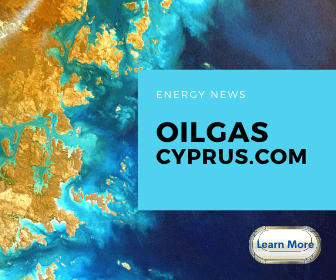Cyprus Talks in Geneva Begin Amid Polar-Opposite Positions
April 28, 2021The Cyprus talks in Geneva began under the auspices of the UN amid polar-opposite positions.
The Turkish-Cypriots and Turks demand a two-state solution. The Greek-Cypriots and Greeks demand a bi-zonal federation.
The difference between the two is the question of sovereignty and legitimacy. The Republic of Cyprus is the only internationally-recognised state authority. A two-state solution would mean two sovereign entities and a permanent partition. This has been ruled out many times in the past.
Bi-lateral meetings started at 12:30pm Cyprus time and will go until 8pm.
The main players at this stage are President Nicos Anastasiades, Turkish-Cypriot leader Ersin Tatar and UNSG Antonio Guterres. Greece and Turkey are represented by each country’s foreign minister.
The National Council is present at the Cyprus talks in Geneva
The National Council is also present in Geneva and set to meet with President Anastasiades later today.
More meetings are expected on April 29, said government sources.
Earlier this month, President Anastasiades ruled out a two-state solution.
Cyprus talks in Geneva - international developments
Several international developments could influence the talks.
Supportive of the Greek-Cypriot side is the US’s recent decision to recognise the Armenian Genocide in Turkey. Turkey has also been roundly condemned for its ongoing human rights abuses in Cyprus. The US’ recognition is a clear signal to Ankara that human rights count.
Undermining the Greek-Cypriot side is speculation that UK ministers are reportedly considering recognising the TRNC as an independent state. The newspaper Express cited Whitehall as the source of the rumours. This might have merit or it might be a rumour spread to pressure the Greek Cypriot negotiating team.
Past efforts to find a solution to the Cyprus problem
There have been innumerable attempts to settle the Cyprus problem. Two of them stand out as moments of historical definition in that they reached the stage of a settlement plan.
In 1979, the American-British-Canadian (ABC) solution for a bi-zonal federation was drafted and rejected by Spiros Kyprianou and Turkey. Much later, in 2004, the UN’s Annan Plan was put to community referenda. It was rejected by the Greek Cypriots and approved by the Turkish Cypriots.
The failure of both plans only showed how polarised the issue of unification is and how little trust and goodwill there is at the political level.
Hardliners make a comeback
Today, the political scene has changed because Turkey no longer bothers to agree to reunification and now insists on a two-state deal.
But The Greek Cypriots, the EU, the UK and Greece are against a solution that recognises the results of the 1974 war – the TRNC. Turkey broke international law when it invaded the island and used force to get its way, therefore the TRNC is a result of an invasion.
Turkey has hardened its line on Cyprus – or finally shown its true intentions – after Foreign Minister Mevlut Cavusoglu ruled out reunification between the Greek-and-Turkish Cypriots.
Have you heard?
Subscribe to CNR’s In the Know Club


